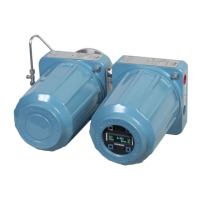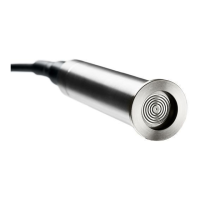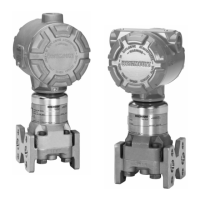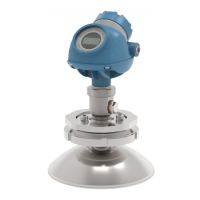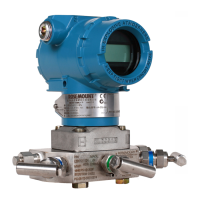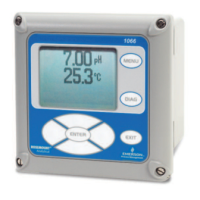9.3.2 Install Hazardous Area OCX 8800
Observe the following cautions when installing the Hazardous Area OCX 8800 in a hot process
stack. If the process is shut down and cooled, the transmitter can be installed in the stack prior
to connecting the pneumatics and wiring.
Whenever a positive stack pressure exists at the installation site, be sure to connect all
pneumatic lines prior to installing the Hazardous Area OCX 8800 in the stack or
ductwork. Failure to connect the pneumatic lines can allow the flow of contaminants
into the Hazardous Area OCX 8800 ports.
1. Bolt the Hazardous Area OCX 8800 to the stack and install insulation. Refer to Figure 9-
1 and make sure all test gas lines and electrical connections are complete.
2. Connect the test gas lines and the instrument air lines to the electronics housing.
3. Remove the electronics housing cover.
4. Install customer power and signal conduits and wiring at the electronics housing.
5. If used, connect external relay leads to the alarm output relay terminal block, Figure
9- 2.
6. Connect the O
2
and COe signal leads to the 4-20 mA signal output terminal block.
7. Connect the line (L1 wire) to the L1 terminal, and the neutral (N wire) to the N terminal
on the AC power input terminal block.
8. Connect the ground lead to the ground stud. Secure the connection with two nuts.
Attach a separate ground lead (G wire) from the ground stud to the G terminal on the
power input terminal block.
9. Install the cover on the electronics housing.
10. Restore power to the system. Allow OCX to reach normal operating temperature.
11. Turn on the test gasses at the cylinders and open the instrument air supply valve.
9.3.3 OCX with Remote Electronics
Remove Sensor Housing
1. Turn off power to the system.
2. Shut off the test gasses at the cylinders and close the instrument air valve.
3. Disconnect the calibration gas, reference air, eductor air, and dilution air lines from the
sensor housing, Figure 9-3.
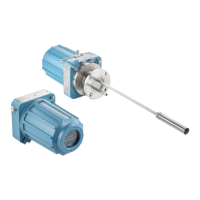
